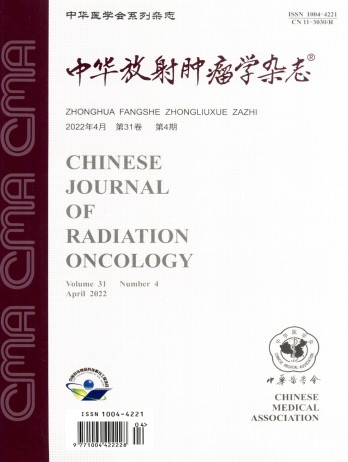局部复发性食管癌症放化疗后抢救策略的临床研究
引用次数: 0
摘要
目的探讨食管鳞癌局部复发患者放化疗后的抢救策略及疗效。方法选取符合入选标准的126例患者,分为补救性手术、补救性放化疗和最佳支持治疗组。结果126例患者中58例接受了补救性食管切除术,52例接受了补救性放化疗,其余16例接受了最佳支持治疗。三组患者接受救助治疗的1、3、5年总生存率分别为51%、16%和4%,而最佳支持治疗组患者均在12.0个月内死亡(P<0.001)。补救性手术组和补救性放化疗组的1、3、5年生存率分别为48%、20%和7%,51%、11%和3% (P=0.473)。Cox比例风险模型多因素分析显示,肿瘤复发T分期和挽救方案是局部复发食管癌患者预后的独立影响因素(P均<0.001)。抢救性手术组术后感染发生率为16%,抢救性放化疗组食管气管瘘和纵隔食管瘘发生率分别为10%和6%。结论食管癌局部复发患者在明确放化疗后,行补救性手术或补救性放化疗可提高患者的生存期。然而,在临床实践中应广泛关注术后并发症的处理。关键词:食管癌;局部复发/挽救治疗;预后本文章由计算机程序翻译,如有差异,请以英文原文为准。
Clinical study of salvage strategy for patients with locally recurrent esophageal cancer after definitive radiochemotherapy
Objective
To investigate the salvage strategy and efficacy for patients with locally recurrent esophageal squamous cell carcinoma after definitive radiochemotherapy.
Methods
A total of 126 patients who met the inclusion criteria were enrolled in this study and divided into the salvage surgery, salvage radiochemotherapy and best supportive care.
Results
Fifty-eight of 126 patients received salvage esophagectomy, 52 underwent salvage radiochemotherapy and the remaining 16 patients received best supportive care. The 1-, 3-, 5-year overall survival rates of patients receiving salvage therapy were 51%, 16% and 4% for the three groups, whereas all patients in the best supportive care group died within 12.0 months (P<0.001). The 1-, 3-, 5-year survival rates in the salvage surgery and salvage radiochemotherapy groups were 48%, 20% and 7%, and 51%, 11% and 3%, respectively (P=0.473). Multivariate analysis by Cox proportional hazard model showed that T staging of recurrent tumors and salvage regimen were the independent prognostic factors in patients with locally recurrent esophageal cancer (both P<0.001). Postoperative infection occurred in 16% of the patients in the salvage surgery group, and the incidence of esophagotracheal fistula and mediastinoesophageal fistula was 10% and 6% in the salvage radiochemotherapy group.
Conclusions
A survival benefit can be elicited by salvage surgery or salvage radiochemotherapy in patients with locally recurrent esophageal cancer after definitive radiochemotherapy. Nevertheless, extensive attention should be paid to the management of postoperative complications in clinical practice.
Key words:
Esophageal neoplasm, local recurrence/salvage therapy; Prognosis
求助全文
通过发布文献求助,成功后即可免费获取论文全文。
去求助
来源期刊
自引率
0.00%
发文量
6375
期刊介绍:
The Chinese Journal of Radiation Oncology is a national academic journal sponsored by the Chinese Medical Association. It was founded in 1992 and the title was written by Chen Minzhang, the former Minister of Health. Its predecessor was the Chinese Journal of Radiation Oncology, which was founded in 1987. The journal is an authoritative journal in the field of radiation oncology in my country. It focuses on clinical tumor radiotherapy, tumor radiation physics, tumor radiation biology, and thermal therapy. Its main readers are middle and senior clinical doctors and scientific researchers. It is now a monthly journal with a large 16-page format and 80 pages of text. For many years, it has adhered to the principle of combining theory with practice and combining improvement with popularization. It now has columns such as monographs, head and neck tumors (monographs), chest tumors (monographs), abdominal tumors (monographs), physics, technology, biology (monographs), reviews, and investigations and research.

 求助内容:
求助内容: 应助结果提醒方式:
应助结果提醒方式:


